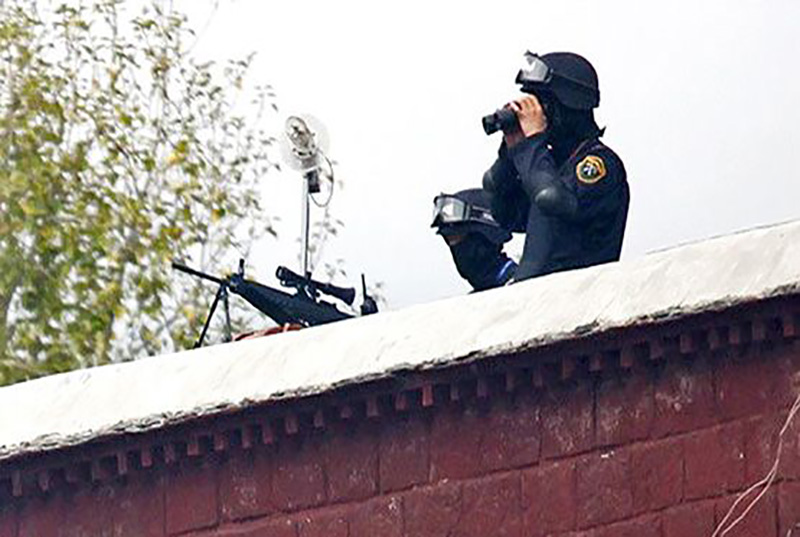(TibetanReview.net, Jan06’22) – China is to bring into force on Mar 1 a new law that will ban efforts to spread religion or disseminate religious teaching through online channels such as social media as its Communist Party tightens restrictions on religious activity ahead of this fall’s crucial five-yearly party congress. The Congress will see Xi Jinping, the most powerful man in China since Mao Zedong and Deng Xiaoping, perpetuating his rule for another five years and beyond.
The new law – “Measures for the Administration of Internet Religious Information Services” – forbids or strictly limits a broad swathe of online activity, reported the asia.nikkei.com Jan 6.
The report said a license will be required to disseminate religious information via text, images or audio through websites, apps, blogs or livestreams. Fundraising will be prohibited.
The report noted that in a national religious affairs meeting last month, President Xi Jinping had stressed the “Sinicization” of religion in the People’s Republic of China. Religious affairs should be actively guided to adapt to a socialist society, he had said.
The report said religious activity had been difficult for Chinese authorities to get a handle on. It noted that religious groups and followers were able to make accounts freely on WeChat – the messaging service used by 1.2 billion people in China – and broadcast messages daily. The idea of young people getting drawn into faith online is seen as having alarmed Beijing.
China is home to anywhere from 60 million to 80 million Protestants and about 12 million Catholics as well as anywhere from 21 million to 23 million Muslims, the report said, citing estimates from US-based human rights organization Freedom House. It estimates the Buddhist population, the world’s largest, in the PRC at 185–250 million practitioners.
Compared to them, the Communist Party of China has a membership, sworn to atheism, of just 95 million.
The report said the new rules, drafted by five government departments including the State Administration for Religious Affairs, ban the creation of religious organizations or schools online, as well as efforts to attract new followers. Non-Chinese individuals and groups will face especially tight restrictions.
Religious content accused of opposing the Communist Party’s leadership or inciting subversion of state power will be banned. Citizens will be banned from any perceived use of religion to “obstruct the implementation of state judicial, education, marriage, social management or other systems.”



